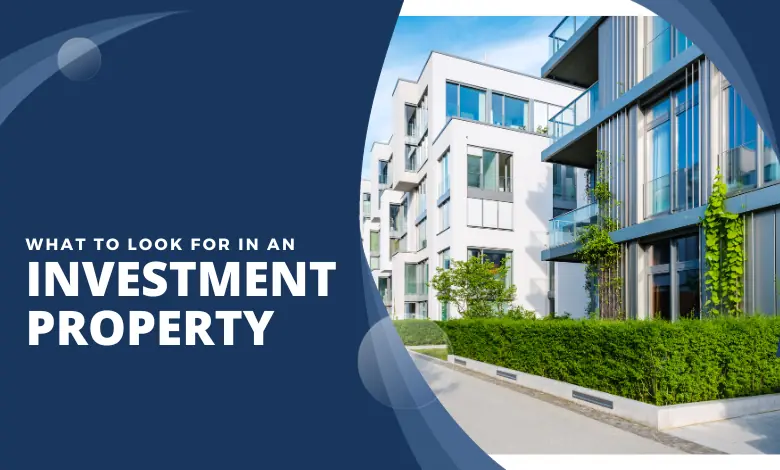What To Look For In An Investment Property

Investment property is real estate bought with the aim of earning a financial return. This return can be from rental yield, or from future gains, or both. The main goal of buying an investment property is normally to grow wealth and generate passive income. So, what you look for in an investment property can be different from what you want when buying a house for yourself. There are advantages to property investment but it’s important to have a strategy and make decisions based on what will give you the best returns. There are some key factors to consider to ensure your investment is a good one.
Capital growth.
Capital growth means the increase in the value of the property over time. You should research the growth-trend indicators for the property you’re looking at and ascertain the median sale price in the suburb where it is situated. Has it increased much in recent years?
Rental demand and yield.
Investors often rent out their property to generate income and help cover costs. Researching rental demand and yield is a key component of assessing the financial viability of any investment property. Rental yield is an assessment of how profitable a property might be, based on expected rental income balanced with the costs of owning and maintaining it. These costs can include mortgage repayments, strata fees, council fees, maintenance and insurance. Ideally, your property should provide reliable rental income that helps with covering these costs. Considering the performance history of similar properties, including vacancy rates, rental yield, and potential growth rate, plus what types of rental property are in demand, will help with these calculations. You can always get property investment advice if you’re unsure about anything.
Location, location, location.
This is a real estate cliché for good reason, both if you are investing, or living in the property. What will a tenant be looking for in a rental? You might consider easy access to public transport, schools, shops and restaurants. All these factors usually make a property more appealing to a tenant. Is the neighbourhood safe? Is the area likely to undergo development that will bring more retail outlets? Are there any infrastructure projects that could bring more jobs? These things may increase the appeal of the property as well as its value.
Type of property.
A house with a backyard will probably appeal to tenants in a family-friendly suburb. A modern apartment may experience higher rental demand near universities. Try to understand the demographics of the area and factor this into your decision. Houses are usually more expensive to buy and insure and can need more maintenance, but they can fetch higher rents and have higher capital growth. Units often sell for a lower price and need less maintenance, but there can be other costs to consider.
Property features.
Features like a garage, extra bathrooms, and a home office space will increase a property’s rental value. Is it well-designed? Does it get plenty of natural light? These are things that tenants look for, and therefore so should you, before you buy.






